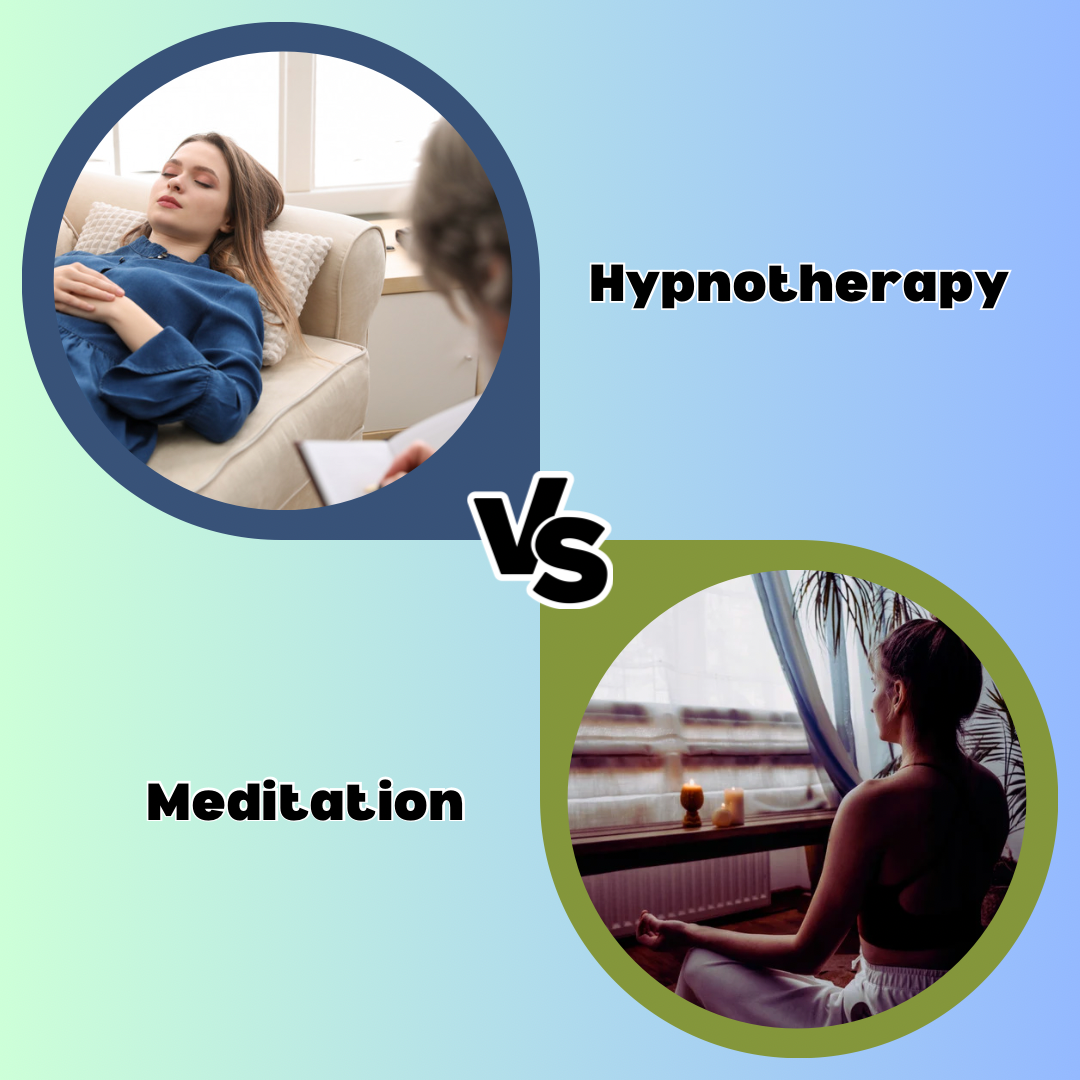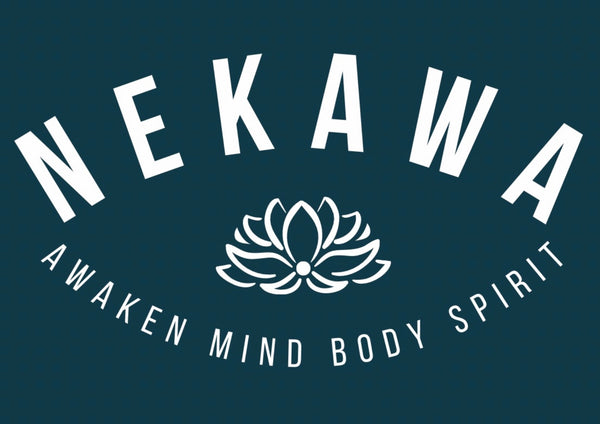
Hypnotherapy vs. Meditation: Exploring the Paths to Inner Peace
Share
In the pursuit of inner peace and mental well-being, many paths lie before us. However, two practices that often come to mind are hypnotherapy and meditation. They may seem similar, but they are distinct approaches to achieving harmony and healing within. In this blog, we'll explore the key differences between hypnotherapy and meditation empowering you to make an informed choice that resonates with your unique needs and goals.
Personal Note
As a forenote, based on my personal journey and the experiences of my clients, I've found that if you're facing challenges in your meditation practice, hypnotherapy can serve as a valuable ally in overcoming obstacles that may be preventing you from finding inner peace. It goes beyond just addressing the surface issues; it can effectively clear the path to a deeper and more profound meditative experience. Many clients have shared how hypnotherapy has not only assisted in removing mindset blockages but has also acted as a gateway, making meditation more accessible and enjoyable. The release of mental barriers through hypnotherapy seems to create a smoother pathway into the serene realms of meditation, promoting a sense of ease and openness that enhances the overall meditation experience. You’re welcome to book a free 15minute consultation to find out more.
Understanding Hypnotherapy
The Essence of Hypnotherapy:
Hypnotherapy is a therapeutic technique that involves entering a state of heightened imagination and suggestibility. This can be done in a waking state or in what could look like a relaxed state. A trained hypnotherapist can work with you to address specific issues, habits or behaviours at the inner/deeper levels of the mind.
Guided and Therapeutic:
Hypnotherapy sessions are guided by a trained practitioner who uses a range of various techniques. During the process, it is like a dance between the client and the hypnotherapist. The client actively participates in a dynamic process, working alongside the therapist to achieve therapeutic goals.
Self-hypnosis:
Through guided hypnotherapy sessions an individual might be introduced to self-hypnosis. With practice, this allows an individual to tap into states of focused attention, heightened suggestibility and deep relaxation independently.
Benefits of Hypnotherapy:
-
Behaviour Modification: Hypnotherapy can be highly effective in addressing and modifying behaviours such as smoking, overeating or phobias.
-
Stress and Anxiety Management: It's a valuable tool for managing stress, anxiety and even post-traumatic stress disorder (PTSD).
-
Pain Management: Hypnotherapy is used to alleviate chronic pain and discomfort, often as part of a comprehensive pain management plan.
-
Enhanced Self-Esteem: It can boost self-esteem and self-confidence by addressing the root causes of self-doubt and negative self-talk.

Understanding Meditation
The Essence of Meditation:
Meditation, on the other hand, is an ancient practice that focuses on training the mind to achieve a state of deep relaxation and heightened awareness. It involves focusing your attention on a particular object, thought or activity to bring about mental clarity and emotional stability.
Voluntary and Self-Guided:
In meditation, you are in full control of your experience. It is a voluntary, solo endeavour that doesn't require a therapist or guide. You consciously guide your mind to achieve a state of inner calm and presence.
Guided Meditations:
Guided meditations are led by instructors or available on online platforms. They typically involve verbal instructions, soothing imagery or music to help facilitate relaxation, mindfulness and self-awareness. They often use calming instructions, visualisations or prompts to guide individuals through the meditation process, either in person or through recorded sessions.
Guided meditations are generally not intended to induce a hypnotic state. Instead, they serve as tools for relaxation, stress reduction and promoting mindfulness. While some elements of guided meditation and hypnotherapy may overlap, such as the use of calming language and imagery, the primary objectives and therapeutic approaches differ, with guided mediations aligning more closely with the contemplative aspects of meditation rather than the goal-oriented and therapeutic nature of hypnotherapy.
Benefits of Meditation:
-
Stress Reduction: Regular meditation can lower stress levels, promote relaxation and improve emotional well-being.
-
Increased Awareness: Meditation cultivates mindfulness, which enhances self-awareness and the ability to stay present in the moment.
-
Better Concentration: Practicing meditation can boost concentration and sharpen mental focus over time.
-
Emotional Regulation: It can help regulate emotions and improve emotional resilience.

Key Differences
Active Participation:
In hypnotherapy, you actively participate in a joint process with the therapist, working together to achieve therapeutic goals; while in meditation, you actively engage in the process and guide your own experience.
Purpose:
Hypnotherapy is goal-oriented and aims to address specific issues or challenges at a deeper level; whereas meditation primarily focuses on relaxation, mindfulness and self-awareness.
State of Consciousness:
Hypnotherapy induces a state of heightened imagination and suggestibility; whereas meditation aims to cultivate awareness.
Practitioner Involvement:
Hypnotherapy requires the involvement of a trained hypnotherapist, while meditation can be practiced independently.
Willingness:
The rapport between the Hypnotherapist and the client is extremely important and the client always needs to be willing and comfortable to do the work.

In the end, the choice between hypnotherapy and meditation depends on your specific needs and goals. Meditation is a wonderful practice for enhancing mindfulness, reducing stress and improving overall mental well-being. On the other hand, if you're looking to address specific issues, habits or behaviours at a deeper level, hypnotherapy guided by a trained practitioner might be the path to explore.
Whichever path you choose, remember that both hypnotherapy and meditation can be powerful tools for personal growth and healing. Ultimately, the journey to inner peace is a deeply personal one, and the right approach is the one that resonates most with you and may vary with time and circumstances.
